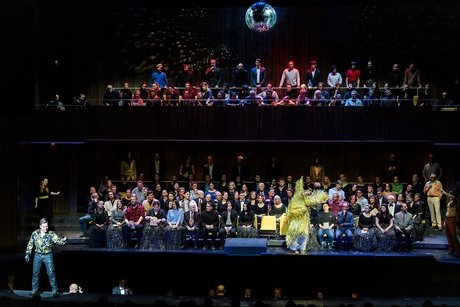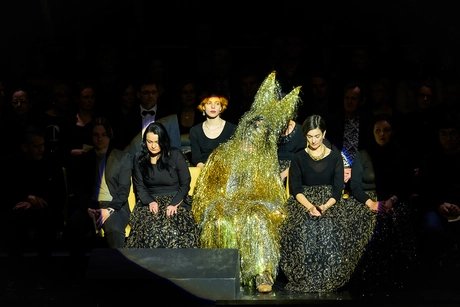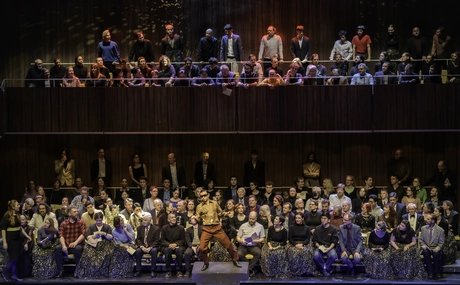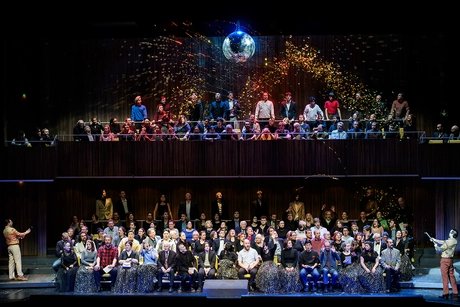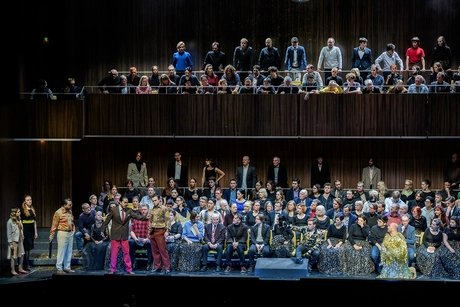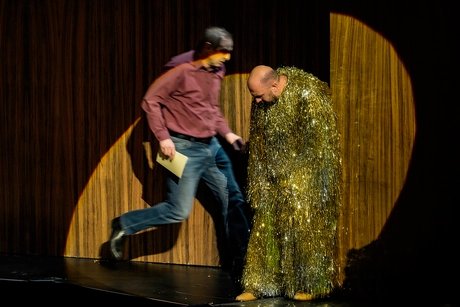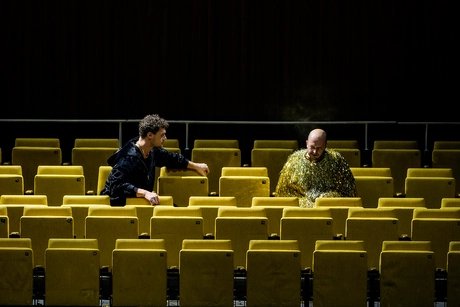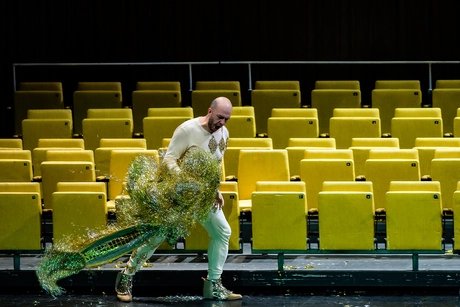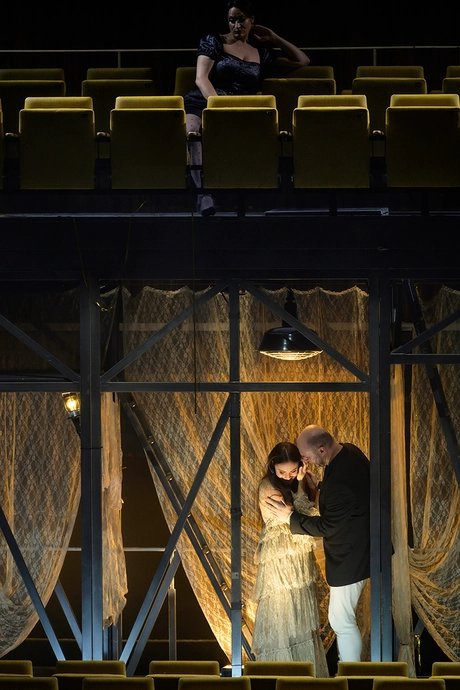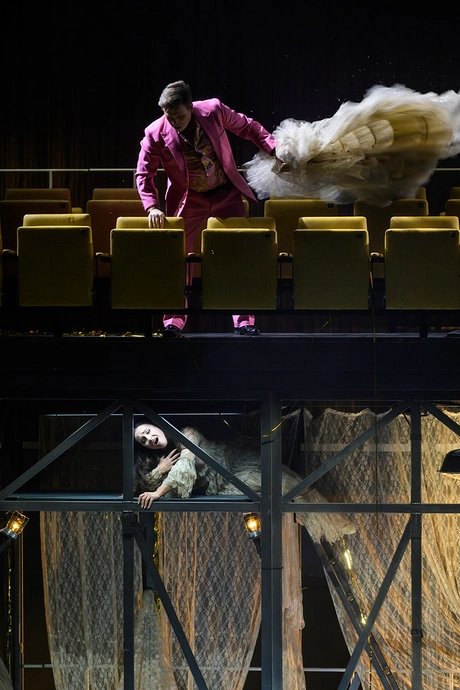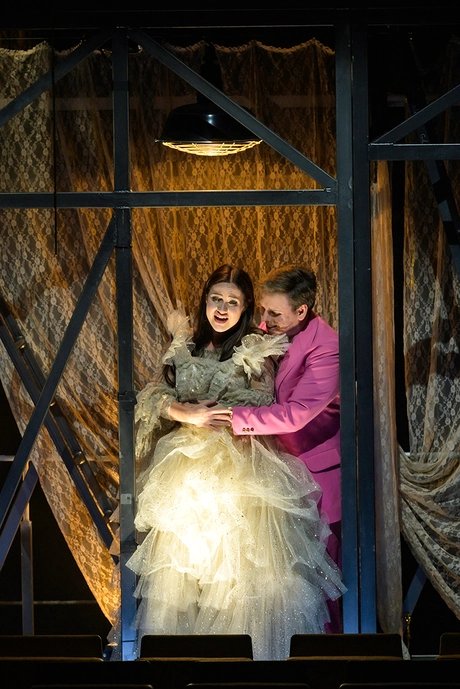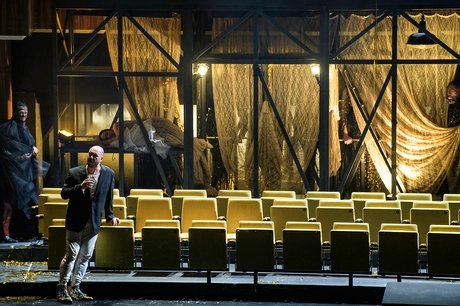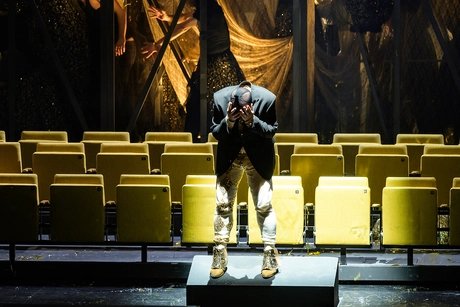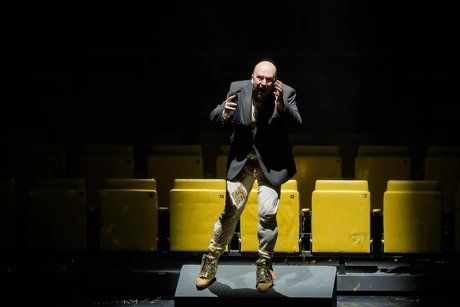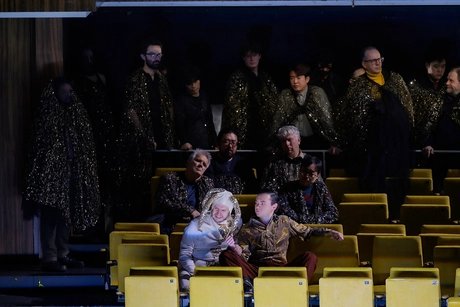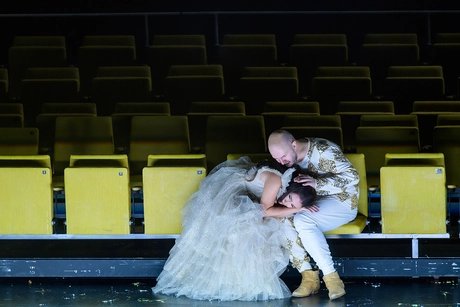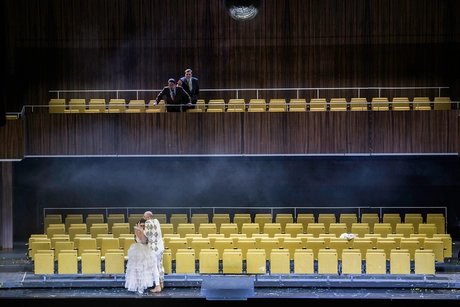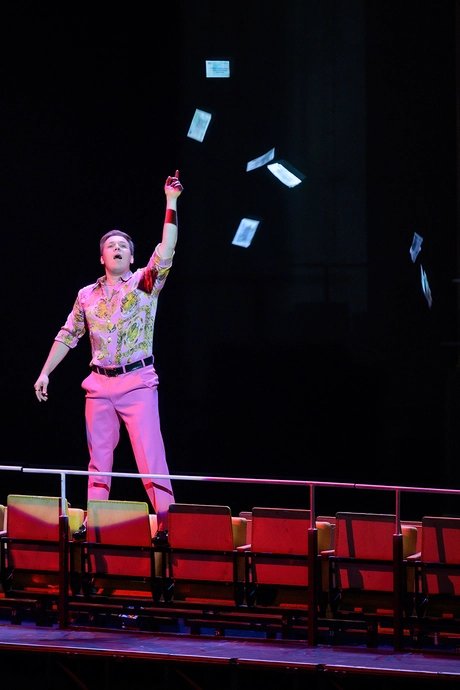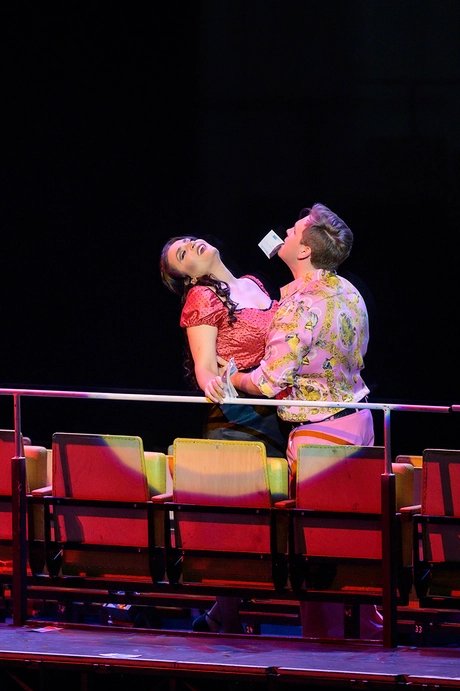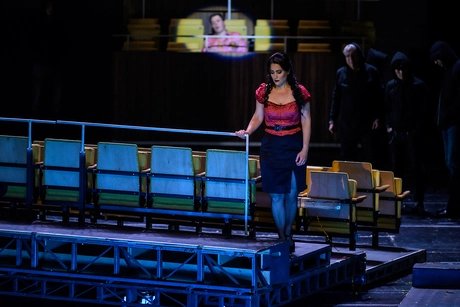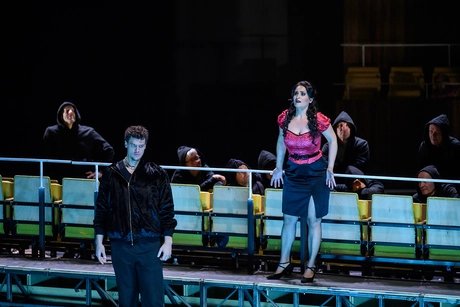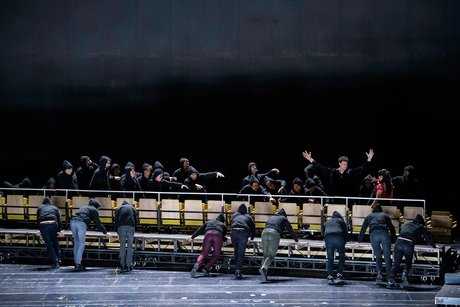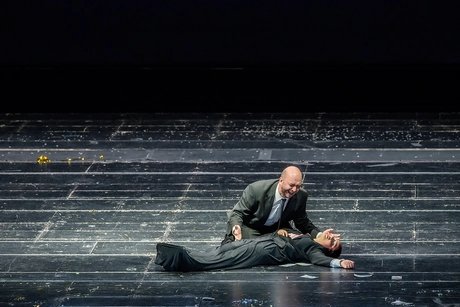
With Giuseppe Verdi's RIGOLETTO, the Deutsche Oper Berlin presents a masterpiece of Italian opera that continues to fascinate audiences with its dramatic power, psychological depth, and musical genius. A gripping new production by Jan Bosse tells the story of a father who risks everything to protect his daughter – and is ultimately destroyed by it.
- Conductor: Daniele Squeo / Roberto Rizzi Brignoli
- Director: Jan Bosse
- Cast: Andrei Danilov / Xabier Anduaga, Daniel Luis de Vicente / Juan Jesús Rodríguez, Nina Solodovnikova / Lilit Davtyan, and others
RIGOLETTO – Verdi's dark operatic tragedy about power, love, and betrayal
RIGOLETTO is more than just an operatic classic – it is a psychodrama about paternal love, social inequality, and the destructive power of abuse of power. The focus is on Rigoletto, the disfigured court jester at the court of the Duke of Mantua. He mercilessly mocks his master's victims, but has no idea that his own daughter, Gilda, will soon be drawn into the vortex of seduction and violence. Verdi masterfully succeeds in musically conveying the conflicts of these characters: from the cynical duke to the broken father to the self-sacrificing daughter.
The opera is based on Victor Hugo's drama "Le roi s'amuse" and celebrated its acclaimed premiere in 1851. With world-famous arias such as "La donna è mobile" and "Caro nome," RIGOLETTO is one of the most popular operas worldwide.
The production – Jan Bosse transforms the opera into a gripping chamber play
For his first opera production in Berlin, director Jan Bosse has designed an impressive spatial concept: the auditorium becomes a splendid court, the lower stage an oppressive hiding place. This spatial shift reflects Rigoletto's desperate attempt to mediate between public ridicule and private happiness. But the more the plot escalates, the more his world crumbles – until, in the end, only emptiness remains.
Bosse succeeds in creating a modern, intense interpretation of the classic that appeals to both opera connoisseurs and newcomers. His direction focuses on the psychological depths of the characters and brings Verdi's musical theater into a new, directly tangible dimension.
Experience Verdi – live at the Deutsche Oper Berlin
Running at approximately 2 hours 45 minutes (including one interval), RIGOLETTO is an ideal introduction to the world of Italian opera. Emotionally gripping, musically brilliant, and visually impressive – experience Verdi's great tragedy live in Berlin.(In Italian with German and English subtitles)
Additional information
Melodramma in 3 acts
Libretto by Francesco Maria Piave
First performed on 11th March 1851 in Venice
Premiered at the Deutsche Oper Berlin on 21. April 2013
Pre-performance lecture (in German): 45 minutes prior to each performance
Libretto by Francesco Maria Piave
First performed on 11th March 1851 in Venice
Premiered at the Deutsche Oper Berlin on 21. April 2013
Pre-performance lecture (in German): 45 minutes prior to each performance
Participating artists
Daniele Squeo (Musikalische Leitung)
Jan Bosse (Inszenierung)
Stéphane Laimé (Bühne)
Kathrin Plath (Kostüme)
Jeremy Bines (Chöre)
Andrei Danilov (Der Herzog von Mantua)
Daniel Luis de Vicente (Rigoletto)
Nina Solodovnikova (Gilda)
Michael Bachtadze (Der Graf von Monterone)
Jared Werlein (Der Graf von Ceprano)
Hye-Young Moon (Die Gräfin von Ceprano)
Benjamin Dickerson (Marullo)
Michael Dimovski (Matteo Borsa)
Tobias Kehrer (Sparafucile)
Aleksandra Meteleva (Maddalena / Giovanna)
Paul Minhyung Roh (Ein Gerichtsdiener)
Lucy Baker (Eine Hofdame)
Chor der Deutschen Oper Berlin (Chöre)
Orchester der Deutschen Oper Berlin (Orchester)
